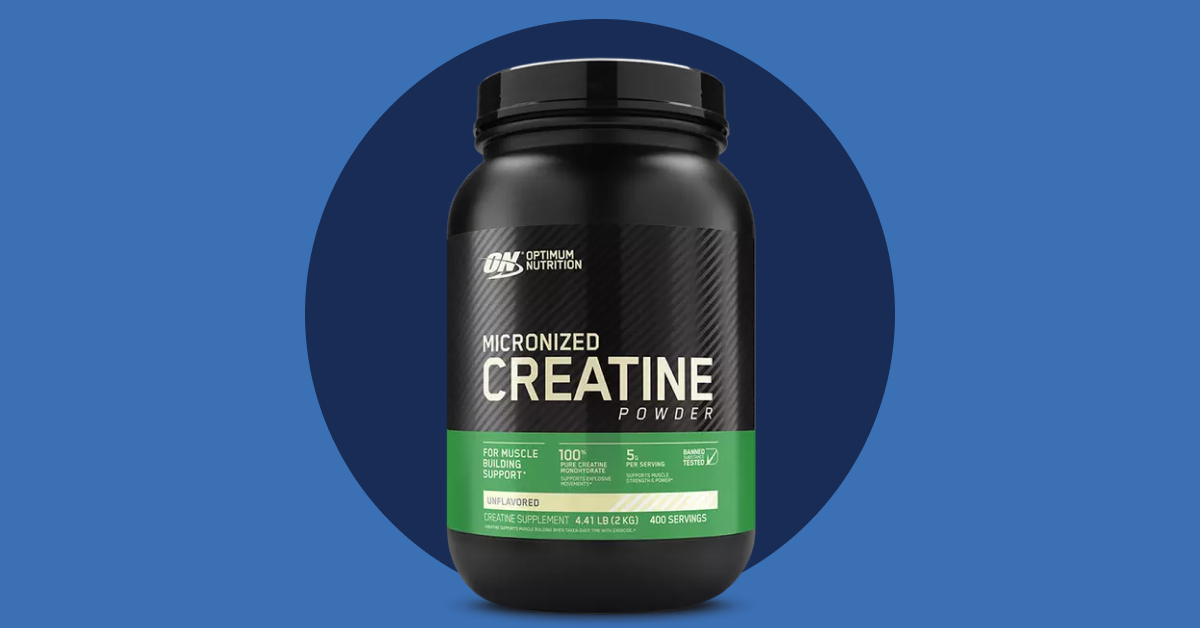Do I really need to take creatine?
Learn the science behind why everyone seems to suddenly be taking this supplement — and our fav easy-dissolve version.

Creatine, a supplement powder of methylguanidine-acetic acid, used to be the domain of performance athletes and bodybuilders looking to get even more jacked…but now everyone in your pilates class seems to be downing it daily. That’s because the science is showing that muscle mass naturally diminishes over time, so unless you’re actively building muscle, you’re losing it as you age — meaning your body fat percentage will increase over time if you keep your routine the same and don't do anything to replace the lean muscle. That’s where creatine comes in, because it’s been well-studied to help build muscle and even help combat age-related muscle loss (sarcopenia), according to the Journal of the International Society of Sports Nutrition.
Creatine is a molecule that's produced in the liver and helps create energy during movement. "Creatine plays a crucial role in ATP production, a primary energy source for skeletal muscles and the brain," says Dr. Victoria Finn, M.D., an endocrinologist at Medical Offices of Manhattan. A meta-analysis of 10 studies showed that when taken for about six months, using creatine supplementation combined with strength training significantly increased upper and lower body strength in older women, which can also lead to improved bone health, says Finn.
There may be other benefits, too. Creatine can also provide some protection to your immune system and cardiovascular health — which are both crucial parts of healthy aging. "It may also accelerate energy metabolism in the brain, which can benefit memory, mood, and overall energy levels," says Finn.
Creatine is naturally found in milk, fish, beef, seafood, and chicken. While we usually recommend getting nutrients directly from food when possible, it would be difficult to get enough creatine for the full benefit from food alone, which is why supplementing is helpful for many people.
If you’re ready to talk with your doctor about adding creatine to your routine, we do have to give you the one downside: with the wrong formulation, taking it daily is a chore. The problem is that creatine usually comes as a powder that’s tough to dissolve and often gritty or sour, especially in cold liquids like smoothies — not something you want to take every day for the rest of your life. In the WeightWatchers Awards, Optimum Nutrition Micronized Creatine Monohydrate Powder, Unflavored stood out because it’s in creatine monohydrate form (the most science-backed version), free from sweeteners or flavorings, and had the best texture of any we tried. “It’s completely tasteless and dissolves entirely in my smoothie or even in water, making it undetectable,” says Samhita Mukhopadhyay, our head of content and impact. Now that’s how we can manage taking it daily.
Check out the other can’t-live-without winners of the 2025 WeightWatchers Awards
WW Awards reflect WW’s own nutrition, food preparation, and movement criteria and are intended to recognize products that align with WW’s approach to weight management. These awards do not constitute approval, endorsement, or certification by the FDA, or any other government agency or brand.